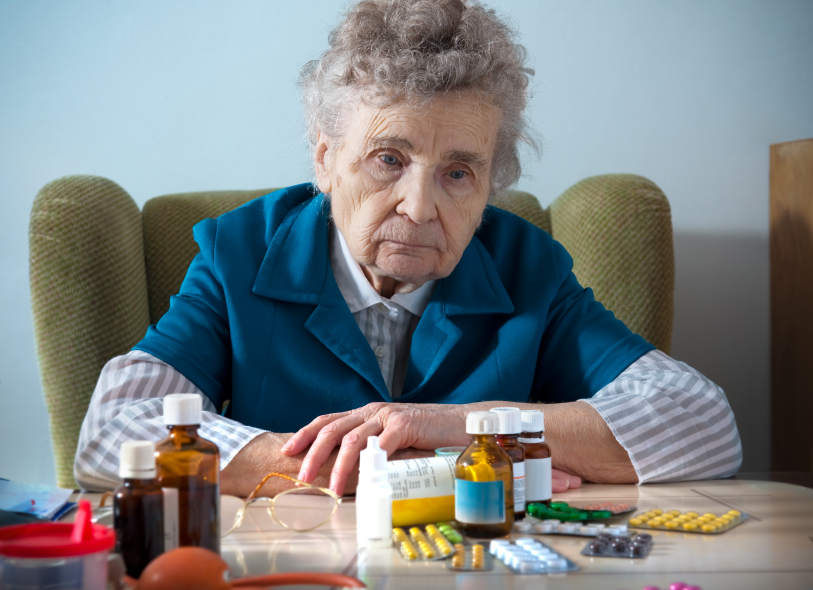It really annoys me but I hear so many people around my age ask, “What’s the point in living longer than previous generations, if declining brain function takes most of the enjoyment out of those extra years and physical deterioration takes the rest?”
Negative I know, but way too common.

This cruel trade off causes large numbers of baby boomers (or even those in their forties and fifties) to view the prospect of aging with growing trepidation.
And for those people in middle age now the thought is even worse when faced with the prospect that in the next 50 years, 25 percent of the world’s population will be at least 65 years old so the impact of the aging process across the entire globe will be felt in many aspects of all our lives.
But I can tell you from my own many years of real living experience, you shouldn’t be worrying unduly. Just take on board the following advice and you will have many pleasurable and independent years ahead.
Ageing doesn’t have to be a period of protracted physical and mental decline and as Betty Friedan said;
“Aging is not lost youth but a new stage of opportunity and strength.”
It’s now possible for most people to remain mentally and physically active until the very end of their lives. The important thing to remember is you just need to make the right choices earlier on in your life.
Until more recent times those choices often weren’t viable options because most people, including medical professionals, didn’t really know they even existed, or if they did, certainly didn’t pay them too much attention.
I am sure many of you can remember how in the 1960’s if you didn’t smoke you were the odd one out. How times have changed…..and for the better I might add.
In recent years Medical science has achieved such great success in extending lives that health professionals have ended up with their hands full caring for so many more older people.
Yet, while most gerontologists were busy dealing with frail patients with a plethora of age-related ailments, a small number of researchers were looking for new ways to lessen the incidents of such ailments.
Thanks to these dedicated researchers in the science of ageing, mainstream medicine is finally recognizing that seniors are no longer destined to become semi invalids, either physically or mentally, for many, or even all of the last years of their lives.
Most of the remedies the scientists are now recommending are surprisingly simple and straightforward and are available to everyone at very little cost (although it may require some discipline).
One of the most important factors in increasing your longevity and general well-being is to have an active and inquiring mind.
In a very interesting study, “The Aging Brain – Mental Exercises to Sustain the Brain” carried out by psychologists at Brandeis University in Massachusetts, education was found to be a key factor in delaying the onset of age-related mental and physical degeneration.
Their research suggests that having a University or College Degree could slow the brain’s aging process by up to as much as ten years.
That doesn’t mean people without a college degree or diploma are destined to age rapidly, but it reinforces the argument that pushing our brains to work hard from an early age plants the seeds of a lifelong habit that delivers significant health benefits later on in life.
So you see, it’s never too late to start working on adding life to your years.
Many different kinds of mental exercises bring significant benefits to males and females alike no matter when they’re started, especially those involving the effort of learning something new.
One good example is studying a new language; another (which may surprise some people) is regular socializing. Both those activities require the mind to concentrate and the brain to rapidly process new data.
Dancing is particularly beneficial because it’s a form of socializing that involves both physical and mental exercise. Dancing forces our brains to work at coordinating our movements with those of our partner as well as to engage in conversation with that person. You might say dancing keeps the brain on its toes.

Medical experts have known for a long time that aerobic and resistance exercises are good for our health in different ways.
Aerobic exercise is particularly good for our cardiovascular system, and resistance exercise for our muscles and bones so let’s all get up and give it a try…..even if it is something new to your daily routine.
And here’s another really good reason to visit the gym three or four times a week.
Recent studies show that physical exercise is also beneficial at a deeper level; it keeps our cells healthier by protecting our telomeres. Telomeres are vital regions of DNA at the end of our chromosomes. Their function is to guard DNA against age-related damage.
Telomeres become shorter and less effective as we age – a process that is natural and inevitable. The good news is that we can slow that process down. Research shows that the telomeres of late middle-age athletes are much longer than those of non-athletes of the same age.
More significantly, their telomeres are nearly as long as those of non-athletes half their age.
Those research findings demonstrate that the older athletes had slowed the aging process of their cells simply by exercising. And that’s just another good reason why Strength Training is so Important as You Start Aging.
The bottom line of all this scientific research is that regular physical and mental exercises don’t just make us healthier and happier while we’re doing them, but literally keep our bodies younger for longer by delaying the inevitable physical and mental decline of old age.
The old saying “use it or lose it” makes more sense today than it ever did before.
Like to learn more about “The Aging Brain and Mental Exercises to Sustain the Brain” then go here: http://www.princeton.edu/~manning3/figs/BrandeisPressRelease.pdf
Cheers – John – your Active Ageing Mentor and Coach.
“Active Ageing isn’t about holding onto your youth — it is about maximizing the opportunities of ageing and maintaining your independence.”
P.S. Do a friend a favour – like and share. Thanks.
Leave a Reply